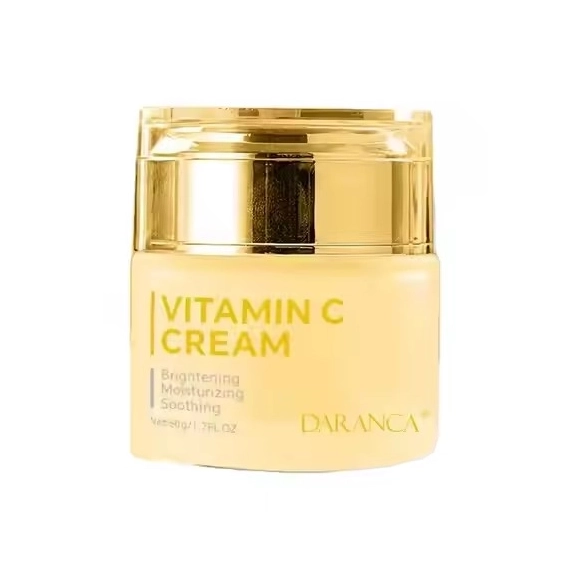Views: 220 Author: cosmeticsinhot Publish Time: 2025-10-21 Origin: Site








Content Menu
● Understanding Skin Care Manufacturing
>> Importance of Quality in Skin Care Products
>> Regulatory Compliance and Safety Standards
● Raw Material Sourcing and Selection
>> Choosing High-Quality Ingredients
>> Verification and Testing of Raw Materials
● Formulation and Product Development
>> Utilizing Experienced Chemists and Formulators
>> Stability and Compatibility Testing
● Manufacturing Environment and Equipment
>> Maintaining a Cleanroom Facility
>> Equipment Selection and Maintenance
>> Batch Record Keeping and Traceability
>> Mixing and Emulsification Techniques
● Quality Control and Assurance
>> Third-Party Testing and Certification
>> Choosing Suitable Packaging Materials
>> Accurate and Transparent Labeling
● Sustainable and Ethical Manufacturing Practices
>> Reducing Environmental Impact
>> Ethical Sourcing and Fair Labor Practices
● Innovation and Technology Integration
>> Automation and Digitalization
>> Research and Development Investment
● Frequently Asked Questions (FAQs)
Skin care manufacturing is a specialized sector that demands a high level of precision, hygiene, and regulatory compliance. With growing consumer awareness and increased demand for natural and effective products, manufacturers must adopt best practices to ensure product quality, safety, and innovation. This article explores essential practices in skin care manufacturing, from raw material sourcing to packaging, quality control, and regulatory adherence.

Skin care manufacturing involves the process of developing, producing, and packaging products intended for skin health and beauty. These products range from moisturizers and sunscreens to serums and cleansers. The complexity of skin care products, which often combine active ingredients with delicate formulations, requires manufacturers to maintain stringent processes and standards.
Quality is paramount in skin care manufacturing because these products come into direct contact with the skin and can impact consumers' health. Poorly manufactured products may cause irritation, allergic reactions, or worse. Therefore, maintaining excellent quality control at every stage is necessary to protect the consumer and the brand reputation.
Skin care products are regulated by various governmental bodies depending on the country, such as the FDA in the United States and the EMA in Europe. Ensuring compliance with these standards is critical. Manufacturers must thoroughly understand ingredient restrictions, labeling requirements, and safety testing protocols.
The foundation of any skin care product is its raw materials. The quality, stability, and efficacy of these inputs directly influence the final product.
Manufacturers should source ingredients from reputable suppliers with verifiable purity and safety documentation. Natural and organic ingredients are increasingly popular, but they require rigorous vetting to guarantee authenticity and efficacy.
Before production, all raw materials must undergo comprehensive testing to verify identity, potency, and contaminants. This includes microbiological tests to prevent microbial contamination and chemical analyses to check for harmful substances.
The formulation process is where raw materials are combined in scientifically balanced proportions to create stable, effective skin care products.
Experienced professionals develop formulations that balance efficacy and skin compatibility. They also consider factors like texture, absorption, and shelf life.
Manufacturers must perform stability testing to ensure the product maintains its characteristics over time under various conditions. Compatibility testing ensures all ingredients work synergistically without causing degradation or adverse reactions.
A controlled manufacturing environment is crucial to prevent contamination and ensure consistent product quality.
Many skin care products, especially those free of preservatives, require production in ISO-class cleanrooms to minimize microbial contamination. Cleanroom protocols must be strictly followed, including gowning procedures and air filtration systems.
Using stainless steel and other non-reactive materials for equipment prevents contamination. Regular cleaning and calibration minimize cross-contamination and mechanical failures.
Proper process controls ensure that every batch of skin care products meets formulation and quality standards.
Meticulous documentation of each batch's production process, ingredient lots, and environmental conditions allows for traceability and troubleshooting if necessary.
Manufacturers use advanced mixing and emulsification equipment to create uniform textures and homogenous products that ensure even ingredient distribution.
Controlling temperature during production is vital because many skin care ingredients are sensitive to heat. pH levels must also be maintained to ensure product safety and skin compatibility.
Quality Control (QC) and Quality Assurance (QA) departments play a central role in guaranteeing product quality before release.
Samples taken at different production stages are tested to confirm formulation parameters, microbial counts, and physical properties.
Final products undergo rigorous tests, including stability, microbiological safety, and efficacy assessments. Packaging integrity is also verified.
Many manufacturers seek third-party certifications like GMP (Good Manufacturing Practices), ISO, or cruelty-free certifications to enhance product credibility.
Packaging protects the product and communicates essential information to consumers.
Packaging must be compatible with the formulation to prevent interaction, contamination, or degradation. For example, airless pumps or UV-protective containers are common for sensitive products.
Labels must include ingredient lists, usage instructions, warnings, and expiration dates. Transparency builds consumer trust and ensures regulatory compliance.
With increasing consumer demand for eco-friendly products, sustainable manufacturing practices are gaining importance.
Manufacturers can optimize processes to reduce waste, energy consumption, and water usage. Using biodegradable packaging and minimizing plastic are also critical.
Supporting ethical ingredient sourcing and ensuring fair working conditions throughout the supply chain promote socially responsible manufacturing.
Embracing modern technologies can enhance efficiency and product innovation.
Automated filling lines, batch tracking software, and digital quality control systems improve accuracy and reduce human error.
Ongoing R&D is crucial for developing new formulations and adapting to evolving market trends and consumer preferences.

Q1: How important is GMP certification in skin care manufacturing?
A1: GMP (Good Manufacturing Practices) certification ensures consistent quality and safety. It is crucial for gaining consumer trust and meeting regulatory requirements.
Q2: What are the common challenges in skin care product formulation?
A2: Balancing ingredient compatibility, stability, texture, and ensuring skin safety while maintaining efficacy are key challenges.
Q3: How can manufacturers ensure product safety?
A3: Through rigorous raw material testing, controlled manufacturing environments, and comprehensive finished product testing.
Q4: What role does packaging play in skin care products?
A4: Packaging protects formulations from contamination and degradation and provides essential product information to consumers.
Q5: Why is sustainability important in skin care manufacturing?
A5: Sustainable practices reduce environmental impact, meet consumer demand for eco-awareness, and promote ethical business.
Hot Tags: China, Global, OEM, private label, manufacturers, factory, suppliers, manufacturing company